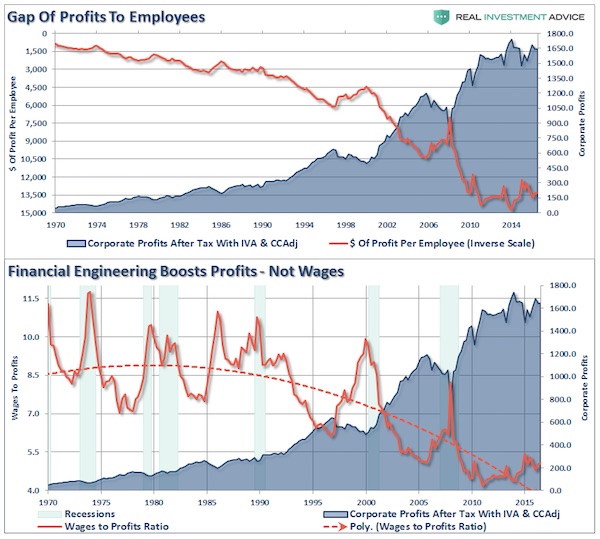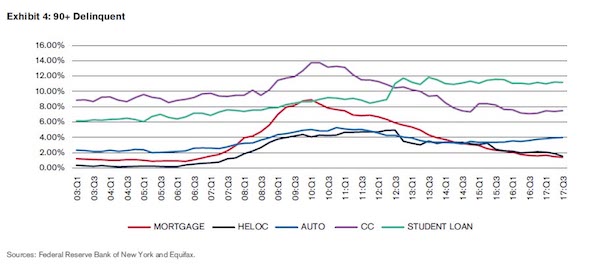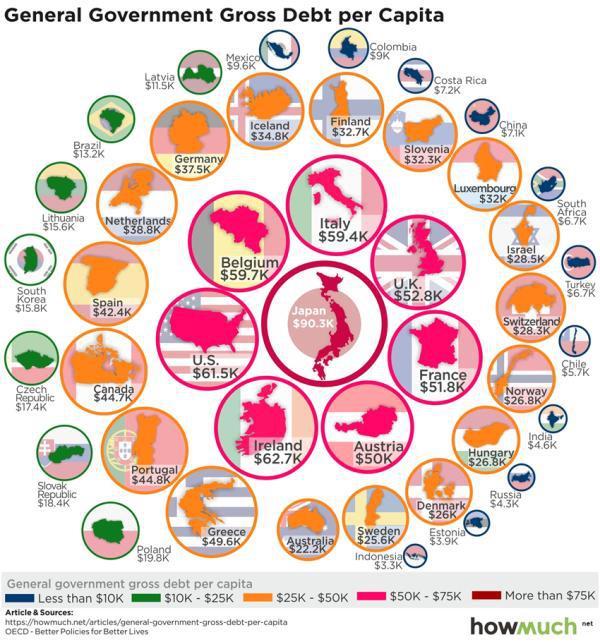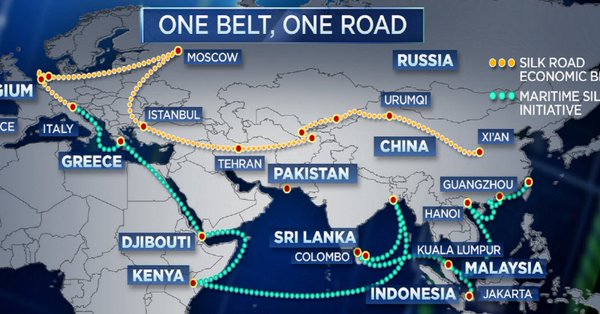
Edward Hopper Automat 1927

Trump kicks the relief bill back to Congress and says he wants $2,000 checks. Everyone scrambles to react. Bernie campaigner David Sirota writes: “The question now: Will Pelosi, Schumer and Biden do everything in their power to call Trump’s bluff..?”. But what bluff? Saying the same thing as the squad is a bluff? And they can “call the bluff” only by agreeing with the man they’ve demonized for 4 years?
Trump has been talking about bigger checks for a long time. Was this a bluff that whole time? Amy Klobuchar tries her own private angle, and calls raising the stimulus to $2,000 per person “an attack on every American”. What? Is that also a bluff? At the end of the day, Trump and the Squad both want the same thing. All the rest are stuck in the middle.
And AOC tries to save the day, and her face, by saying the Squad had the proposals for $2,000 checks already written up.
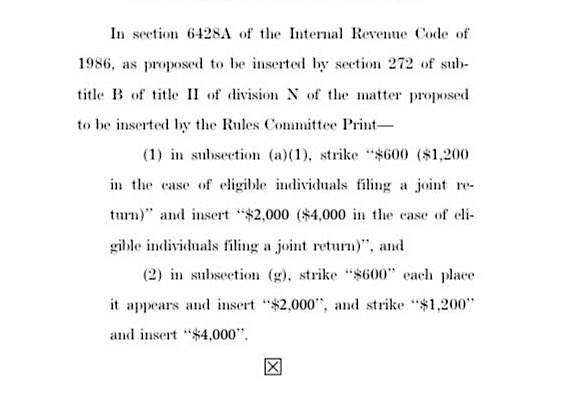
Okay, explain where they went. How hard did you fight Pelosi etc. in order to get the exact same thing Trump wants?
Who’s calling whose bluff around here?

“Send me a suitable bill or else the next administration will have to deliver a COVID relief package and maybe that administration will be me and we will get it done.”
• Trump Kicks COVID Bill Back To Congress; Demands $2,000 Stimulus (ZH)
President Trump appeared to threaten to veto the COVID-19 stimulus package that Congress passed almost 24 hours earlier, telling lawmakers to boost checks for Americans to $2,000 as well as “get rid of wasteful and unnecessary items” in the spending bill. Trump said “throughout the summer, Democrats cruelly blocked COVID relief legislation in an effort to advance their extreme left wing agenda and influence the election…” “it’s taken forever” to get a package and the bill passed “is much different than anticipated.” “It really is a disgrace,” he added. Then reeled off a list of disgusting ‘pork’ that has been piled into this record-breaking 5,593 page bill.
As Axios notes, many of the items Trump listed, such as foreign aid, which were not related to COVID-19 are not part of the coronavirus relief package. These form part of the government funding bill, which was passed alongside the coronavirus relief package. Then he took a shot at Biden and the election. “Send me a suitable bill or else the next administration will have to deliver a COVID relief package and maybe that administration will be me and we will get it done.”
Trump relief speech
— Donald J. Trump (@realDonaldTrump) December 23, 2020

“Luckily for Biden, Nancy Pelosi and Chuck Schumer — and for millions of people who need help — Trump is giving them one last chance to do the right thing..”
• Force The Vote On Direct Aid (DP)
Donald Trump on Tuesday threatened to veto emergency stimulus legislation unless lawmakers increased direct payments to millions of families facing the prospect of eviction, loss of health insurance, unemployment and starvation. Lawmakers had settled on meager one-time $600 checks but the president demanded $2,000 payments — a proposal that was championed months ago by congressional progressives but that was ignored by both parties’ legislative leaders. The declaration from the GOP president follows his other recent statements in support of bigger checks. The entire situation shows that Joe Biden and Democratic congressional leaders either could have driven a much tougher bargain in their negotiations over new COVID-19 relief legislation with Republican Senate Majority Leader Mitch McConnell — or they actually deliberately prioritized austerity and didn’t want a bigger spending package in the first place.
Luckily for Biden, Nancy Pelosi and Chuck Schumer — and for millions of people who need help — Trump is giving them one last chance to do the right thing and back a bolder version of the $1,200 direct payment proposal that Sens. Bernie Sanders, I-Vt., and Josh Hawley, R-Mo., have been pushing from the beginning of this most recent round of negotiations. In fact, seven months ago Sanders joined Sens. Kamala Harris, Ed Markey and Kirsten Gillibrand in introducing a bill to provide monthly $2,000 checks to individuals until the pandemic is over. (That’s not surprising, given that Sanders and the Congressional Progressive Caucus he led were the original authors of the first stimulus check of the modern era, way back in 2001.) The question now: Will Pelosi, Schumer and Biden do everything in their power to call Trump’s bluff and force a vote to increase the $600 checks to $2,000?
Pelosi clearly feels the heat — she is suddenly pretending she’s always been ready to take Trump up on his offer to support $2,000 survival checks, even though prior to about an hour ago, she had never tried to triangulate Trump against McConnell on the issue. Earlier this month, she supported a deal that did not include checks at all, and just yesterday she insisted that $600 checks were “significant.” Indeed, the $2,000 is a new ask for Democratic leaders — progressive lawmakers had been pushing it for months, but Pelosi’s much-touted HEROES Act only asked for $1,200 one-time, means-tested checks. Regardless, the Democratic House Speaker is now finally saying she wants a vote to amend the stimulus bill to increase the small $600 checks to $2,000 — and such an amendment has already been written by Democratic Reps. Alexandria Ocasio-Cortez and Rashida Tlaib.

“That last line of Biden’s statement is arguably the most disturbing foreshadow of all: He is depicting the process — which starved America for months and now skimps on benefits — as a terrific “model” for the future.”
• Biden’s Austerity Zealotry Helped Cut The Stimulus Bill In Half (DP)
If there is any consistent throughline in Joe Biden’s long career, it is his commitment to the ideology of austerity. He has obsessively pushed for Social Security cuts for decades, and he is stocking his administration with deficit hawks — including today’s announcement that notorious Social Security cutterBruce Reed will be White House deputy chief of staff. Biden has even threatened to veto Medicare for All legislation on the grounds that it costs too much (even though Congress says it would actually save a lot of money). Now, in the whittling down of the stimulus legislation, we see the first concrete example of how Biden’s ideology can change policy in the here and now — and in deeply destructive ways.
As pain and suffering is crescendoing across the country, Biden refrained from aggressively pushing the bipartisan initiative for $1,200 survival checks. Indeed, at a time when there was a legitimate chance to flip some Republicans — including Donald Trump! — against McConnell and push for a more robust stimulus, he demurred. However, the New York Times reminds us today that Biden was “not an idle bystander in the negotiations.” On the contrary, the paper of record tells us that the president-elect played a decisive role in making sure the legislation was cut in half. Here is the key excerpt:
“With Republican and Democratic leaders in the House and Senate far apart on how much they were willing to accept in new pandemic spending, Mr. Biden on Dec. 2 threw his support behind the $900 billion plan being pushed by the centrist group. The total was less than half of the $2 trillion that Speaker Nancy Pelosi and Senator Chuck Schumer, Democrat of New York, had been insisting on. Mr. Biden’s move was not without risks. If it had failed to affect the discussions, the president-elect risked looking powerless to move Congress before he had taken the oath of office. But members of both parties said his intervention was constructive and gave Democrats confidence to pull back on their demands.”
Read that again, just so it sinks in: Biden endorsing an initiative to slash the stimulus bill in half “gave Democrats confidence to pull back on their demands” for a much more robust rescue package at a time when America faces rising food insecurity and poverty. His enthusiastic lauding of the final bill underscores the role he played. “In November, the American people spoke clearly that now is a time for action and compromise,” Biden said in a statement. “I am heartened to see members of Congress heed that message, reach across the aisle, and work together. This is a model for the challenging work ahead for our nation.” That last line of Biden’s statement is arguably the most disturbing foreshadow of all: He is depicting the process — which starved America for months and now skimps on benefits — as a terrific “model” for the future.

But it’s 2 different bills, says everyone. Yeah, big difference that makes.
• COVID19 Catch-22: Regime-Change Policies Come With US Pandemic Relief (GZ)
The longest piece of legislation in United States history, containing both a coronavirus relief package and the annual omnibus spending package, quickly passed through Congress on December 22, with little opposition. While technically separate bills, the omnibus and stimulus were debated and passed together, at the same time.The massive piece of legislation — a staggering 5,593 pages in length — lays bare the priorities of the US government, prioritizing regime change in foreign nations and the imperatives of empire over the basic needs of Americans. In just a few hours, it passed through the House of Representatives by 359-53, and through the Senate by 92-6.
While the US public was forced to grovel for months for a $600 direct payment, the same piece of legislation pumps billions of dollars into “democracy programs” — US government code for regime-change operations via civil society NGOs — and foreign military assistance. The measly $600 survival checks pale in comparison to the massive foreign spending on regime change and titanic allocations to prop up US-friendly authoritarian militaries. On so-called “Democracy Programs” alone, the legislation appropriates $2.417 billion, and $6.175 billion on the “Foreign Military Financing Program.” Another $112.9 million is appropriated for “International Military Education and Training.”
$6 billion more is allocated toward the domestic procurement of US Air Force missiles and US Navy weapons of war. This is in addition to the $740 billion defense bill passed earlier in December. By contrast, the stimulus package comes at a value of $900 billion, with the largest portion devoted to business bailouts. The Federal News Network reports that the $1.4 trillion omnibus includes $671.5 billion allocated to “base defense spending,” with another $77 billion going to “overseas contingency operations.”

“Pence has the sole power determine whether to reject impermissible states of electors.”
• White House Memo Details How ‘Pence Card’ Can Save Trump Presidency (NF)
Sources in the Trump administration confirmed to National File that President Donald Trump’s most vocal advocates within the White House have determined that both U.S. Code and the Constitution contain language that requires Vice President Mike Pence to reject unlawful Electoral College certificates, but Pence must act by no later than Wednesday, December 23. The drafters of this White House memo believe that the federal check to the states’ elections resides with Vice President Mike Pence in his role as President of the Senate. Additionally, Pence has the sole power determine whether to reject impermissible states of electors. However, Pence is legally required to do this on the fourth Wednesday in December, which this year falls on December 23.
National File’s sources in the White House indicated that the memo was requested by those in the President’s circle who are most keen to see the 2020 election, and the ensuing fallout, administered in as transparent of a manner as possible. They also indicate that the push to find a path to verify the 2020 election’s integrity is not coming solely from the White House, but also comes from across numerous agencies in the administration. FROM THE MEMO: Article II, Section 1 of the U.S. Constitution requires that “Each State shall appoint, in such Manner as the Legislature thereof may direct, a Number of Electors.” Therefore, the papers (or “slates”) the states attempted to submit to the President of the Senate and Archivist of the United States are not legal, permissible certificates of votes and lists by Electors as recited in Title 3, U.S.C., sections 9 and 11. Arizona, Georgia, Michigan, Nevada, Pennsylvania, and Wisconsin violated the U.S. Constitution’s Art. 2, S.1, Cl.2 and 14th Amendment, Section 1, Equal Protection Clause in administering their elections, therefore rendering their slates impermissible.
On Dec. 14, the States consummated a fraudulent and Constitutionally deficient certification of their electors as required by 3 USC 7. State and federal authorities have discovered Overwhelming evidence of election fraud and irregularities since Nov. 4, likely rising to the level of criminal election fraud and public corruption. Civil courts dismissed these claims procedurally, rather than on substance.

And the Hill doesn’t like it.
• Growing Number Of GOP Lawmakers Back Electoral College Challenge (Hill)
A growing number of House Republicans say they will challenge the results of the 2020 presidential election when Congress meets to certify the Electoral College results on Jan. 6. The latest Republican to say he will do so is Rep.-elect Madison Cawthorn (N.C.), who will be a part of the House when it convenes in early January. He implored other Republicans to also challenge the results in a video message. “I have a message for all other Republicans across the country,” Cawthorn said. “If you are not on the record calling for fair, free and just elections now and in the future, I will come to your district and I will fund a primary opponent against you.” Not doing this to help my career in Washington, in fact this will most likely harm it. But no one should go to Washington as a career. Go there to serve the people. And on behalf of the people I am contesting this election based on constitutional violations by key states. — Madison Cawthorn (@CawthornforNC) December 21, 2020
There is no evidence the results of the last election showing President-elect Joe Biden defeating President Trump by more than 70 electoral votes and more than 7 million votes overall was unfair, and efforts by Trump and his allies to reverse the outcome have gone nowhere in the courts. The effort in the House is also doomed to failure, as it will not be possible for supporters to secure a majority vote given Democratic control of the lower chamber, and the fact that a number of Republicans also object to the effort first launched by Rep. Mo Brooks (R-Ala.). But Trump has encouraged the effort, and a number of House Republicans, likely with an eye on getting attention from the most powerful Republican in the country, have said they will join Brooks.

“Today’s pardon helps correct the wrong that Mueller’s team inflicted on so many people.”
• Trump Pardons George Papadopoulos (DC)
President Donald Trump granted a full pardon on Tuesday to George Papadopoulos, the former campaign aide at the center of the FBI’s investigation into possible collusion with Russia to influence the 2016 election. “Mr. Papadopoulos was charged with a process-related crime, one count of making false statements, in connection with Special Counsel Robert Mueller’s investigation into possible Russian interference in the 2016 presidential election,” the White House said in a statement about the pardon. “Today’s pardon helps correct the wrong that Mueller’s team inflicted on so many people.” Trump also pardoned Alex van der Zwaan, a Dutch national convicted in the Mueller probe. Last month, Trump pardoned Michael Flynn, his former national security adviser, who pleaded guilty to false statements charges on Dec. 1, 2017.
Papadopoulos was the first Trump associate to plead guilty in the Mueller probe. He served 12 days in prison on charges that he made false statements to the FBI in January 2017 regarding his interactions with a Maltese professor who claimed to have learned that the Russian government had Hillary Clinton’s emails. The FBI opened Crossfire Hurricane, its counterintelligence investigation of the Trump campaign, on July 31, 2016, based on an Australian diplomat’s tip regarding a meeting he had on May 10, 2016 with Papadopoulos. Alexander Downer, the diplomat, claimed that Papadopoulos told him that Russia might help the Trump campaign by releasing material close to the election.
Investigators initially thought that Papadopoulos took part in a collusion scheme with Russia or knew of Trump associates who might have been. But the FBI probe, and the Mueller investigation that followed, ultimately turned up no evidence of a conspiracy between Trump associates and the Russian government. Papadopoulos has denied telling anyone on the Trump campaign about his conversations with the Maltese diplomat, Joseph Mifsud. “Notably, Mueller stated in his report that he found no evidence of collusion in connection with Russia’s attempts to interfere in the election. Nonetheless, the Special Counsel’s team still charged Mr. Papadopoulos with this process-related crime,” the White House said in its pardon statement.

The borders already re-opened.
• WHO: New UK COVID19 Strain No Deadlier, Only Slightly More Infectious (RT)
The World Health Organization has come forward to calm things down amid the anxiety over a new potentially ‘highly infectious’ Covid-19 strain found in the UK, saying it is not that different from other coronavirus strains. “There is zero evidence that the new coronavirus variant increases severity of the disease,” the WHO’s Health Emergencies Program Chief Mike Ryan told at a press conference on Monday, citing data received from British scientists. The risks faced by the people that catch this particular strain of the virus are pretty much the same as odds faced by other people suffering from Covid-19. According to the WHO, it is neither more aggressive, nor any deadlier than the other strains.= It does seem to be spreading somewhat easier, the health watchdog admitted. Still, its contagiousness appears to be nothing out of the ordinary and it is still much less infectious than diseases such as mumps.
The new strain would also hardly affect the efficacy of drugs and vaccines developed against Covid-19, the WHO Chief Scientist Soumya Swaminathan said. “So far, even though we have seen a number of changes, a number of mutations, none has made a significant impact on … the susceptibility of the virus to any of the currently used therapeutics, drugs or the vaccines under development,” she said. WHO officials also described a flurry of travel bans to and from the UK imposed by some two dozen of nations across the world as a move taken out of abundance of caution. “We have to find a balance. It’s very important to have transparency, it’s very important to tell the public the way it is, but it’s also important to get across that this is a normal part of virus evolution,” Ryan said, while still calling this decision “prudent.”

”.. prompting then-US president Ronald Reagan to say “How am I supposed to get anyplace with the Russians if they keep dying on me?” Yet Reagan was 74 at the time, older than all three.”
• America Is Now Ruled By People Older Than Soviet Union ‘Gerontocracy’ (RT)
Joe Biden, set to be the oldest-ever US president, is actually on the younger side of people currently running the American political establishment, who show no sign of wanting to ever step aside for another generation. It is often overlooked that Donald Trump currently holds the distinction of being the oldest-ever US president, being 70 at the time of his inauguration. Biden will take that trophy as well if he’s inaugurated in January 2021, having turned 78 last month. Even so, he is actually younger than the current leaders of the House and the Senate! Though all major power brokers in Washington are older than the “gerontocracy” that ruled the Soviet Union in the 1970s and the 1980s, you won’t hear the US mainstream media make the comparison, as it wouldn’t fit their Narrative.
Sure, there has been some carefully calibrated talk about the “cognitive decline” of Senator Dianne Feinstein, who is 87. But Feinstein is from an overwhelmingly Democrat state and she can be easily replaced at the same time as Kamala Harris, Biden’s running mate who still hasn’t resigned her Senate seat. House Speaker Nancy Pelosi (D-California) is 80, and has raised eyebrows herself with the whole “Good Morning. Sunday Morning” glitch-in-the-Matrix behavior during a TV appearance in September. Way back in 2018, Pelosi insisted that any talk about wanting someone younger in the leadership position was “sexist,” and went on to ruthlessly crush any opposition to her getting the gavel – and the power that went with it – inside the party. In the same interview, Pelosi blanked out on the name of Senate Majority Leader Mitch McConnell (R-Kentucky), calling him “whatshisname.”
Born several months ahead of Biden in 1942, McConnell is 78 himself. He had a bout with polio when very young, and though successfully treated, he’s had difficulty climbing stairs all his life. While he hasn’t shown any signs of cognitive decline, his political choices as of late have certainly caused some Republicans to wonder if he’s truly the legislative genius his supporters make him out to be. [..] the young activist House members who came in with 2018’s “Blue Wave,” such as Alexandria Ocasio-Cortez (D-New York), are being kept in check by the old guard. Just last week, AOC was denied a spot on the House Energy and Commerce Committee, thwarting her plans to push for her “Green New Deal” proposal. Compare this state of US politics with the notorious “gerontocracy” of the Soviet Union. Three aging Soviet leaders died in quick succession between 1982 and 1985, prompting then-US president Ronald Reagan to say “How am I supposed to get anyplace with the Russians if they keep dying on me?” Yet Reagan was 74 at the time, older than all three.

“On top of that, there is now—I won’t call it news—official yammer that those pesky Russkies are at it again…”
In chess, stalemate describes the endgame situation in which one party has no possible legal moves. It is the point at which we are arrived in our Presidential fiasco. There has been great angst and gnashing of teeth over it, and ebullient, if tentative, rejoicing on the part of giddy enthusiasts for whom Trump’s electoral defeat represents the Jubilee, the Dawn of Glory, and re-establishment of righteousness on earth. This view, deluded and infantile as it is, is nevertheless sincere and widely held. Stalemate, though, is not victory, in chess or otherwise. In a stalemate the game ends in a draw. That said, it seems likely Trump will depart—in spite of the hysteria peddled by so many in media and cyber-flackery—without anything faintly resembling the Reichstag Fire, or even a Proud Boys version of the shootout at the OK Corral. He’ll go with a whimper, not a bang.
So the crisis ends in victory? Or has it indeed been a sort of draw? We’ve been assured from authoritative quarters, in the most decisive terms, that, in his mulish, petulant refusal to take no for an answer to his grandiose ambitions, Trump has done irreparable damage to the Great Institution of our Electoral Democracy; that his dogged denial of his loss, and utter rejection of the protocols of cordial transition have sorely undermined, and perhaps even fatally shaken, our collective faith in the purity and justice of our Constitutional process and its benign functioning. On top of that, there is now—I won’t call it news—official yammer that those pesky Russkies are at it again. Yes, by golly, they’ve diabolically infiltrated our Official Secrets Crypt, no doubt goaded into it by that fiend, Putin, who, according to what we’ve been schooled for four years to believe, ought to have been spending all his energies backing Trump, but somehow overlooked that.
It appears that after doing so much to elect him in ‘16, they didn’t bother this time and let him lose. Just no fathoming their deviltry. Anyhow, our noble protectors and defenders, those fab Security Services—FBI, NSA, CIA and the other sixteen or twenty-three sister spook units who’ve done so much to keep us from harm—all have their knickers in a twist, one hand clutching their pearls and the other making a bold fist at the Kremlin, over Vlad & Co. attacking the dead meat of our sanctified secrets catacombs. What a dogpile! What a gang-bang! Trump and the Russians, allied again, bringing all their satanic powers to bear on the frail, vulnerable vessel of our fate, the very motor and mainspring of Columbia, the Gem of the Ocean: our hallowed electoral system. Come on, somebody has to call bullshit on this nonsense.

Two pieces from Jim Rickards at Daily Reckoning.
• China Has Infiltrated America (Rickards)
Spying is as old as civilization. As long as there have been leaders with secrets and armies on the march, opponents have wanted to know what they’re thinking and where they’re going. Hence the need for spies. And it comes as no surprise that the Chinese are as good as anyone when it comes to spying and that their main target is the United States. What may come as a surprise is the scope of their success and the enormous number of operatives, influencers, sleepers and other varieties of spies who have already infiltrated critical U.S. institutions. Of course, a lot of spying today involves surveillance of phone calls, digital message traffic, online financial transactions, facial recognition software, satellite surveillance and other electronic tradecraft.
But the old fashioned methods of the human spy penetrating organizations, gaining trust and stealing secrets have never gone away. In fact, that type of human intelligence (HUMINT) seems to be having a renaissance. Members of the Chinese Communist Party who pledge to “fight for communism throughout my life … and… be loyal to the party” are hard at work inside companies like Boeing, Pfizer and Qualcomm, political strongholds like the U.S. State Department, and on Capitol Hill. Other spies operate clandestinely, including a woman named Fang Fang, a young attractive Chinese spy who worked her way into an intimate relationship with Congressman Eric Swalwell (D-CA), a member of the House Intelligence Committee who routinely receives classified briefings.
This is a classic intelligence technique known as a Honey Trap. Swalwell fell for it. Somehow Fang got a heads up and fled back to China before she could be turned into a double-agent or simply arrested by the FBI. No word yet on who gave her the heads-up, but Swalwell is suspected. The Chinese intelligence services have also penetrated academia using so-called Confucius Institutes (cultural exchange facilities that are really nests of spies) and lavish research grants. Too often, Americans are ensnared in Chinese spying efforts either because they are naive or just greedy for the money the Chinese spread around. U.S. targets simply turn a blind eye to the damage to America. Until things change, America’s technological and strategic edge will be blunted by Chinese theft of secrets and compromise of elite decision-makers.
Let’s hope this changes, but don’t hold your breath. Will the U.S. intelligence community get a grip on the Chinese threat? There’s good news and bad news. The good news is that the U.S. The Intelligence Community, particularly the CIA, seem to have woken up to the fact that the world has changed. The bad news is that it still seems to be riddled with the same hidebound bureaucrats, the same ‘go along to get along’ guys I saw during my years at the Agency. A big problem is the “culture of secrecy.” Forty years ago, secrets were valuable, and open-source information was not particularly useful beyond just keeping up with the news. Information used to be a scarce resource. But that world has changed. Today, information flow is like a fire hose; there’s almost more than you can process. The scarce resource today is not information; it’s analytic ability.

War simulations. Better than board games.
• Financial Warfare Is Real (Rickards)
In my 2011 book, Currency Wars, I gave a detailed description of the first-ever financial war game sponsored by the Department of Defense. This financial war game took place in 2009 at the top-secret Applied Physics Laboratory located about twenty miles north of Washington, D.C., in the Maryland countryside. Unlike typical war games, the “rules of engagement” for this financial exercise did not permit the use of any kinetic weapons such as bombs, missiles or drones. The only weapons allowed were financial instruments including stocks, bonds, currencies, commodities and derivatives. The game was played out over two days in the main War Room of the laboratory using six teams divided into the U.S., China, Russia, Europe, East Asia, and Banks & Hedge Funds.
The contestants included about 40 players on the six teams and another 60 participants including: uniformed military, civilian defense officials, observers from the Treasury, Federal Reserve, CIA and other government agencies, think tanks, universities, and financial industry professionals. In that original financial war game, a scenario involving Russia, China, gold and the destruction of the U.S. dollar was played out against a backdrop of geopolitical events, including the collapse of North Korea and a threatened Chinese invasion of Taiwan. In May 2015, the Pentagon sponsored a new financial warfare session, which I was also invited to attend. This time the financial war took place inside a secure meeting facility at the Pentagon itself.
This new financial war game exercise was smaller and more focused than the one in 2009. We had about 20 participants. Our group included representatives from the diplomatic corps, military, think tanks, universities, CIA and the National Security Council. I was one of three individuals from the investment management community. Our scenario this time was not global but was instead limited to a confrontation between China and the U.S. involving disputed jurisdiction in the South China Sea. Six nations have claims in the South China Sea – China, Taiwan, Philippines, Malaysia, Vietnam and Brunei. These claims overlap to a great extent, setting the stage for disputes and possible war.
The South China Sea is rich in oil, natural gas reserves, fishing rights and other natural resources. The surrounding nations dispute with certain island groups – the Spratly Islands and the Paracel Islands – and are also using reefs, sunken vessels and landfill to create artificial islands, which they are populating with bases and military garrisons. The U.S. has treaty obligations to the Philippines and Taiwan, which could result in the U.S. becoming engaged militarily in the event of a dispute with China. This volatile mix of disputed claims, natural resources and complex treaty networks has the ingredients needed to escalate into a Third World War. All it would take to start a war is some spark, such as a collision at sea or an attack based on mistaken identity or misunderstood intentions. The occurrence of such a war is likely inevitable.

Stating the obvious.
• UN Expert Melzer Asks US President Donald Trump To Pardon Julian Assange (UN)
“Mr. President, Today, I respectfully request that you pardon Mr. Julian Assange. Mr. Assange has been arbitrarily deprived of his liberty for the past ten years. This is a high price to pay for the courage to publish true information about government misconduct throughout the world. I visited Mr. Assange in Belmarsh High Security Prison in London, with two independent medical doctors, and I can attest to the fact that his health has seriously deteriorated, to the point where his life is now in danger. Critically, Mr. Assange suffers from a documented respiratory condition which renders him extremely vulnerable to the Covid-19 pandemic that has recently broken out in the prison where he is being held.
I ask you to pardon Mr. Assange, because he is not, and has never been, an enemy of the American people. His organization, WikiLeaks, fights secrecy and corruption throughout the world and, therefore, acts in the public interest both of the American people and of humanity as a whole. I ask because Mr. Assange has never published false information. The cause for any reputational harm that may have resulted from his publications is not to be found in any misconduct on his part, but in the very misconduct which he exposed. I ask because Mr. Assange has not hacked or stolen any of the information he published. He has obtained it from authentic documents and sources in the same way as any other serious and independent investigative journalists conduct their work. While we may personally agree or disagree with their publications, they clearly cannot be regarded as crimes.
I ask because prosecuting Mr. Assange for publishing true information about serious official misconduct, whether in America or elsewhere, would amount to “shooting the messenger” rather than correcting the problem he exposed. This would be incompatible with the core values of justice, rule of law and press freedom, as reflected in the American Constitution and international human rights instruments ratified by the United States. I ask because you have vowed, Mr. President, to pursue an agenda of fighting government corruption and misconduct; and because allowing the prosecution of Mr. Assange to continue would mean that, under your legacy, telling the truth about such corruption and misconduct has become a crime.
In pardoning Mr Assange, Mr. President, you would send a clear message of justice, truth and humanity to the American people and to the world. You would rehabilitate a courageous man who has suffered injustice, persecution and humiliation for more than a decade, simply for telling the truth.

We try to run the Automatic Earth on donations. Since ad revenue has collapsed, you are now not just a reader, but an integral part of the process that builds this site.
Click at the top of the sidebars for Paypal and Patreon donations. Thank you for your support.

A common mistake when trying to design something completely fool-proof is to underestimate the ingenuity of complete fools.
– Douglas Adams

Alexandros Maragos Conjunction of Jupiter and Saturn over #Athens


Support the Automatic Earth in virustime, election time, all the time. Click at the top of the sidebars to donate with Paypal and Patreon.



